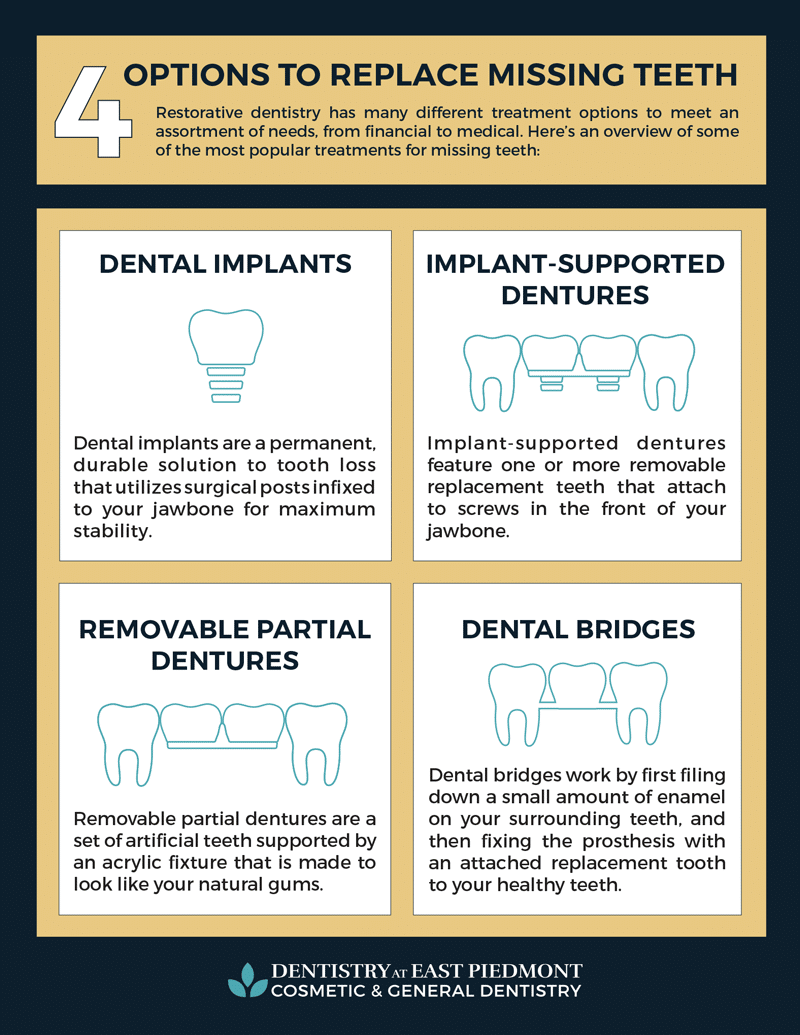Options for Replacing Missing Teeth: Bridges, Implants, and Dentures
Imagine a world where your smile is a door to confidence and self-assurance, a world where you can effortlessly express joy and happiness without hesitation. In this world, missing teeth are not an obstacle, but rather an opportunity for exploration.
Today, you have the chance to discover the various options available for replacing missing teeth: bridges, implants, and dentures. Each option comes with its own benefits and considerations, and by delving into this discussion, you will gain valuable insights that can help you make an informed decision about your dental health.
Bridges: Traditional and Effective Solution
Bridges are a traditional and effective solution for replacing missing teeth. When you have one or more missing teeth, a dental bridge can help restore your smile and improve your oral health. A bridge consists of two crowns on either side of the gap, with a false tooth in between, known as a pontic. The crowns are placed over the adjacent teeth, called abutments, to hold the bridge securely in place.
One of the main benefits of bridges is their ability to restore your ability to chew and speak properly. With missing teeth, you may struggle to eat certain foods or pronounce certain words correctly. Bridges can help alleviate these issues and make your everyday activities more comfortable.
Additionally, bridges can prevent your remaining teeth from shifting out of place. When you have a gap in your smile, adjacent teeth may start to move and tilt into the empty space. This can lead to bite problems and further tooth loss. By filling the gap with a bridge, you can maintain the proper alignment of your teeth and prevent future dental issues.
In terms of aesthetics, bridges can also greatly improve the appearance of your smile. They can fill in the gaps left by missing teeth, giving you a more natural and complete smile.
Implants: Permanent and Natural-Looking Option
If you’re looking for a permanent and natural-looking option to replace missing teeth, implants are a highly recommended choice. Here are four reasons why implants are an excellent solution:
1. Stability: Implants are securely anchored into your jawbone, providing a stable foundation for your replacement teeth. This stability allows you to eat, speak, and smile with confidence, without worrying about your teeth shifting or falling out.
2. Durability: Implants are made from durable materials like titanium, which makes them long-lasting and resistant to decay. With proper care and maintenance, implants can last a lifetime, saving you from the hassle and cost of frequent replacements.
3. Aesthetics: Implants are designed to look and feel like your natural teeth. They’re custom-made to match the shape, size, and color of your existing teeth, ensuring a seamless and natural smile. You can regain your confidence and enjoy a beautiful, natural-looking set of teeth.
4. Oral health: Implants not only replace missing teeth but also help preserve the integrity of your jawbone. By stimulating the bone, implants prevent bone loss and maintain the structure of your face. They also don’t require altering adjacent teeth, unlike other tooth replacement options, which promotes better oral health overall.
Dentures: Removable and Cost-Effective Choice
Are you looking for a removable and cost-effective choice to replace missing teeth? Look no further than dentures. Dentures are a popular option for many people who’ve lost multiple teeth or need full-mouth restoration. They’re custom-made appliances that can be easily removed and put back in your mouth.
One of the main advantages of dentures is their affordability. Compared to other tooth replacement options like implants or bridges, dentures are a more cost-effective choice. They’re typically less expensive and can be a great option if you’re on a budget. Additionally, dentures are also covered by many dental insurance plans, making them even more accessible for those seeking a more affordable solution.
Another benefit of dentures is that they’re removable, which means you can take them out whenever you need to. This makes them easy to clean and maintain. You can simply remove your dentures before bed and clean them thoroughly to keep them in good condition. It also allows for easy adjustment or replacement if necessary.
Dentures may not be as permanent or natural-looking as implants, but they offer a reliable and cost-effective solution for replacing missing teeth. If affordability and flexibility are important to you, dentures may be the right choice for you. Consult with your dentist to determine if dentures are the best option for your specific needs.
Factors to Consider Before Making a Decision
When considering the option of dentures to replace missing teeth, there are several important factors that you should take into account.
1. Oral Health: Before deciding on dentures, it’s crucial to assess your overall oral health. Dentures may not be suitable if you have gum disease, jawbone deterioration, or other oral health issues that could affect the stability and fit of dentures.
2. Cost: Dentures are generally a more cost-effective option compared to dental implants or bridges. However, it’s essential to consider both the upfront costs and long-term maintenance expenses. Dentures may require periodic adjustments, relining, or replacement, which can add to the overall cost.
3. Functionality: Dentures can affect your ability to bite, chew, and speak naturally. While modern dentures have improved in terms of fit and functionality, some individuals may still experience discomfort or difficulty with certain foods. It’s important to discuss your expectations and concerns with your dentist.
4. Aesthetics: Dentures can significantly improve the appearance of your smile. However, they may not look as natural as dental implants. If aesthetics are a priority for you, it’s worth considering other options like dental implants that provide a more seamless and lifelike appearance.
Comparing Costs and Insurance Coverage
To compare costs and insurance coverage for replacing missing teeth with dentures, you should start by consulting with your dental insurance provider. They’ll be able to provide you with detailed information about the coverage options available to you. Dental insurance plans vary in terms of what they cover and how much they’ll pay towards the cost of dentures. Some plans may cover a portion of the cost, while others may cover the full cost. It’s important to understand the specifics of your insurance plan and what it will cover.
In addition to consulting with your dental insurance provider, it’s also a good idea to get cost estimates from different dental providers. The cost of dentures can vary depending on factors such as the type of dentures, the materials used, and the location of the dental practice. By getting quotes from different providers, you can compare the costs and choose the option that best fits your budget.
It is worth noting that while dental insurance can help offset the cost of dentures, it may not cover all expenses. There may be out-of-pocket costs, such as deductibles or co-pays, that you’ll need to pay. It’s important to factor in these additional costs when considering your options.
Ultimately, the cost of replacing missing teeth with dentures will vary depending on your specific circumstances and insurance coverage. By consulting with your dental insurance provider and getting cost estimates from different providers, you can make an informed decision that meets your dental and financial needs.
Frequently Asked Questions
How Long Does the Process of Getting a Dental Implant Typically Take?
Getting a dental implant usually takes several months.
First, the dentist will evaluate your oral health and determine if you’re a suitable candidate.
Then, the implant will be surgically placed into your jawbone.
After that, there’s a healing period of about 3-6 months, during which the implant integrates with the bone.

Finally, the dentist will attach a crown to the implant, completing the process.
Keep in mind that the exact timeframe may vary depending on individual circumstances.
Can Dental Bridges Be Used to Replace Multiple Missing Teeth?
Yes, dental bridges can be used to replace multiple missing teeth. They’re a common option for restoring your smile and improving your ability to chew.
A dental bridge consists of artificial teeth that are attached to dental crowns on either side. These crowns are then placed on the adjacent natural teeth, creating a bridge to fill in the gaps left by missing teeth.
It’s important to consult with your dentist to determine if a dental bridge is the best option for you.
Are Dental Implants Suitable for Everyone, or Are There Certain Criteria That Must Be Met?
Dental implants aren’t suitable for everyone. Certain criteria must be met to determine if you’re a good candidate. Factors such as overall health, gum and jawbone health, and commitment to oral hygiene play a role.
Your dentist will evaluate these factors and discuss the options that are best for you. It’s important to consult with a dental professional to determine if dental implants are the right choice for replacing your missing teeth.
How Often Do Dentures Need to Be Replaced or Adjusted?
Dentures generally need to be replaced or adjusted every 5 to 7 years, depending on your oral health and how well you take care of them. Over time, your jawbone may shrink, causing your dentures to become loose. This can lead to discomfort and difficulty eating.
It’s important to visit your dentist regularly to ensure that your dentures fit properly and to make any necessary adjustments. Taking proper care of your dentures can also help prolong their lifespan.
Are There Any Non-Surgical Alternatives to Dental Implants for Replacing Missing Teeth?
There are non-surgical alternatives to dental implants for replacing missing teeth. These options can be considered if you’re looking for a different approach.
It’s important to explore all possibilities and discuss them with your dentist. They’ll be able to guide you on the best course of action based on your specific needs and circumstances.
Conclusion
In conclusion, when it comes to replacing missing teeth, there are several options to consider.
Bridges offer a traditional and effective solution, while implants provide a permanent and natural-looking option.
Dentures, on the other hand, offer a removable and cost-effective choice.
Before making a decision, it’s important to consider factors click for more info such as oral health, comfort, and convenience.
Additionally, comparing costs and insurance coverage can help in making an informed choice.

Welcome to my website! I am Patrick Oxenham, a dedicated and passionate Pediatric Dentist with years of experience in providing comprehensive dental care for children. I am thrilled to share my knowledge and expertise in smile restoration methods, aesthetic dentistry updates, and gum health and grafting with you.

